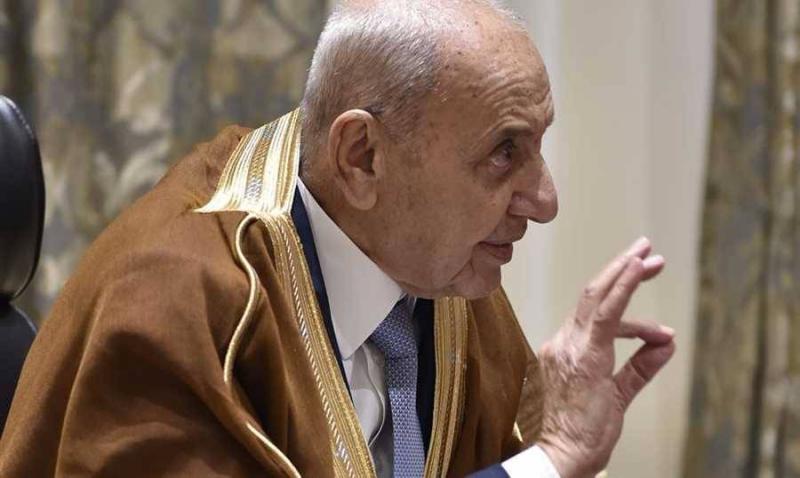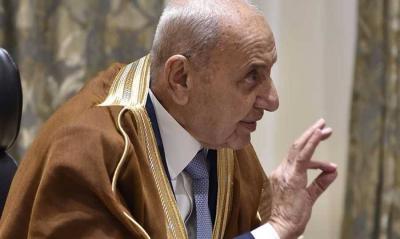It is the fate of this man to accompany the major transformations and turns in Lebanon and the region, to be an active and interactive part of them. From the Lausanne Conference in 1984 to the Taif Agreement in 1989, Nabih Berri, outside of power, was a partner in reshaping the Second Republic after contributing to the fall of the First Republic due to the erroneous calculations of its leaders, both internally and externally, as reported by "Al-Liwaa."
During those years, the leader of Amal Movement practically translated what Imam Musa al-Sadr called for intellectually before his disappearance in 1978, moving the Shia community from a position of deprivation in the state to a position of greater effectiveness in the Lebanese and regional reality. This qualitative shift was neither a stroke of luck nor a historical coincidence, but rather an objective and wise reading of Lebanon's complex reality in its sectarian composition and the nature of its position and role amid the international changes that, naturally, reflected on the Middle East, especially after Israel broke its Arab isolation by signing the Camp David peace agreement with Egypt following the supremacy of the United States in its Cold War with the Soviet Union, considering the Middle East as a zone of nearly total influence.
During those changes, Amal Movement imposed an unassailable presence in Lebanon with coordination and support from Syria, achieving, under Berri's leadership, two pivotal victories in the history of the struggle with Israel and simultaneously with the sectarian regime led by former President Amin Gemayel. The May 17 Agreement of 1984 was toppled, forcing Israel to withdraw from the capital Beirut and most Lebanese regions in 1985, thus firmly establishing Lebanon's Arab identity through its resistance.
Between 1985 and 1990, Berri experienced the most dangerous and complex phases of his political life, facing wars that he was compelled to fight, learning to balance his deepest Lebanese desires with his broader Arab and Islamic realism. He became the 'teacher' who fought everyone and was fought against, yet they eventually returned to him, remaining steadfast in his convictions, with some allies and others finding a way to coexist, all avoiding direct confrontation with him. Those who dared and took risks lost in his arena.
Since assuming the presidency of the parliament in 1992, Berri established a different kind of balance, cementing his status as a national reference during the time of Syrian presence and afterward. During the attempts to incite internal strife following the assassination of martyr President Rafik Hariri, he convened a national dialogue table, thereby sparing Lebanon from its most dangerous and fierce battles. During the July War, he independently negotiated amid Western and American diplomatic pressure and Israeli military pressure across Lebanon, leading to the issuance of UN Resolution 1701.
During the war on Syria, he was, and remains, the first and last supporter of Damascus, Lebanon's only lifeline to all Arabs. He took a decisive political stance supporting the Syrian state and carried its cause to all Arab and Islamic forums, articulating that the Arab world cannot rise while Syria is besieged and destroyed. Amid the sectarian struggle extending from Iraq to Syria, when the identity-based slaughter was occurring, Nabih was the only dialogue tent in the most sectarian area, bringing together representatives from Hezbollah and the Future Movement under his auspices to ease tensions and prevent strife.
At the onset of the October 17 protests, Berri became one of the primary targets due to his national roles; he absorbed campaigns of distortion and disorientation but remained steadfast in his positions despite all offers of inducements and threats because the collapse of the state meant chaos and the invitation of resistance to the internal front, making it easier to target. He bore the arrows of both near and distant adversaries while maintaining the minimum functioning of the institution he heads, which represents the only point of convergence among all the conflicting components, according to "Al-Liwaa."
Today, amid the war on Gaza, the longest and most complicated conflict in the history of the Zionist entity, Berri balances once again between his Lebanese identity and his Arab identity, between Palestine—the primary cause for Arabs and Muslims—and Lebanon, the final homeland for all its people. He supports Palestine and its right despite the world's abandonment, except for those whom God's mercy covered, and he presents martyrs defending the south and Lebanon, distinguishing between the unity of battlefields while still aligning with Sayyed Hassan Nasrallah in vision and goal.
He receives leaders of Hamas, headed by martyr Saleh al-Arouri, announcing his support for the resistance in Gaza and Palestine, and he meets with threatening and intimidating Western envoys, foremost among them American envoy Amos Hochstein, to discuss the implementation of Resolution 1701, while simultaneously stating that there is no solution in Lebanon as long as the war on Gaza continues.
Meeting with Nabih Berri in this phase is a challenging task many desire but it is fraught with confusion and caution. Signs of worry, anticipation, and caution are visible on the experienced, wise, and shrewd man. He welcomes you with a warm smile, the effects of the last ten days of fasting evident on his face. You begin with greetings, fumbling to express your concerns, and he alleviates your apprehension by addressing what you fear to bring up, leading you on a journey through his memory laden with events and difficult positions. After recounting the past, the conversation lands in the present realities and expectations for tomorrow with much objectivity and realism, far from the nonsense of the excited and alarmists.
While discussing Gaza, he praises its resistance and the steadfastness of its people, seeing the Al-Aqsa Flood as an exceptional event that will change Israel as it has changed the perception of the Palestinian cause in the eyes of the world. Despite the enormity of the ongoing Zionist crime, he affirms that the dawn of victory will come, no matter how many clouds of tragedy accumulate around the crescent of sacrifice.
Regarding Iran and the targeting of its consulate in Damascus, Berri asserts that the Iranian response decision will mark a turning point in the course of the war, contingent on the Israeli enemy's reaction and the genuine American desire to prevent matters from escalating towards a comprehensive regional war. As for the southern front, he praises Hezbollah's and Amal's performance in maintaining the rules of engagement, despite Israel's attempts to provoke the resistance into a full-scale war. If events escalate following the expected Iranian response, the entire region will ignite.
The south and its people remain Berri's primary concern; his tone shifts when discussing the south, as he carries the accent, dialect, and heritage of the region in his heart and mind. He talks passionately about the martyrs and the systematic destruction perpetrated by Israel as punishment for those steadfast along Lebanon's borders and their loyalty to national, Arab, and faith-related causes. In between lines of anguish, there is a glimmer of pride in those immense sacrifices during times of abandonment and betrayal.
Regarding reconstruction, Berri states: "Sayyed Nasrallah promised to rebuild, and I, in turn, will bear, alongside Lebanon— all of Lebanon—the burden of compensating for the southern people, even if I have to travel between the capitals of the diaspora to fulfill the rights of these good people, for what the south has provided for Lebanon and Palestine is unprecedented since the establishment of the usurping entity."
There had to be a question about the presidency and the deadly stagnation for a year and a half; he responded with the knowledge that the issue is internal. If the political forces had responded to his call for dialogue, much time could have been saved, and many crises avoided. Frankly, not just Lebanon, but the entire region is waiting for the end of the war on Gaza to rearrange its issues.
The President of the Council bids you farewell at the elevator door, out of humility and affection, returning to his office to continue addressing the concerns of politics and war, leaving you with a great deal of love, prayer, and hope.




